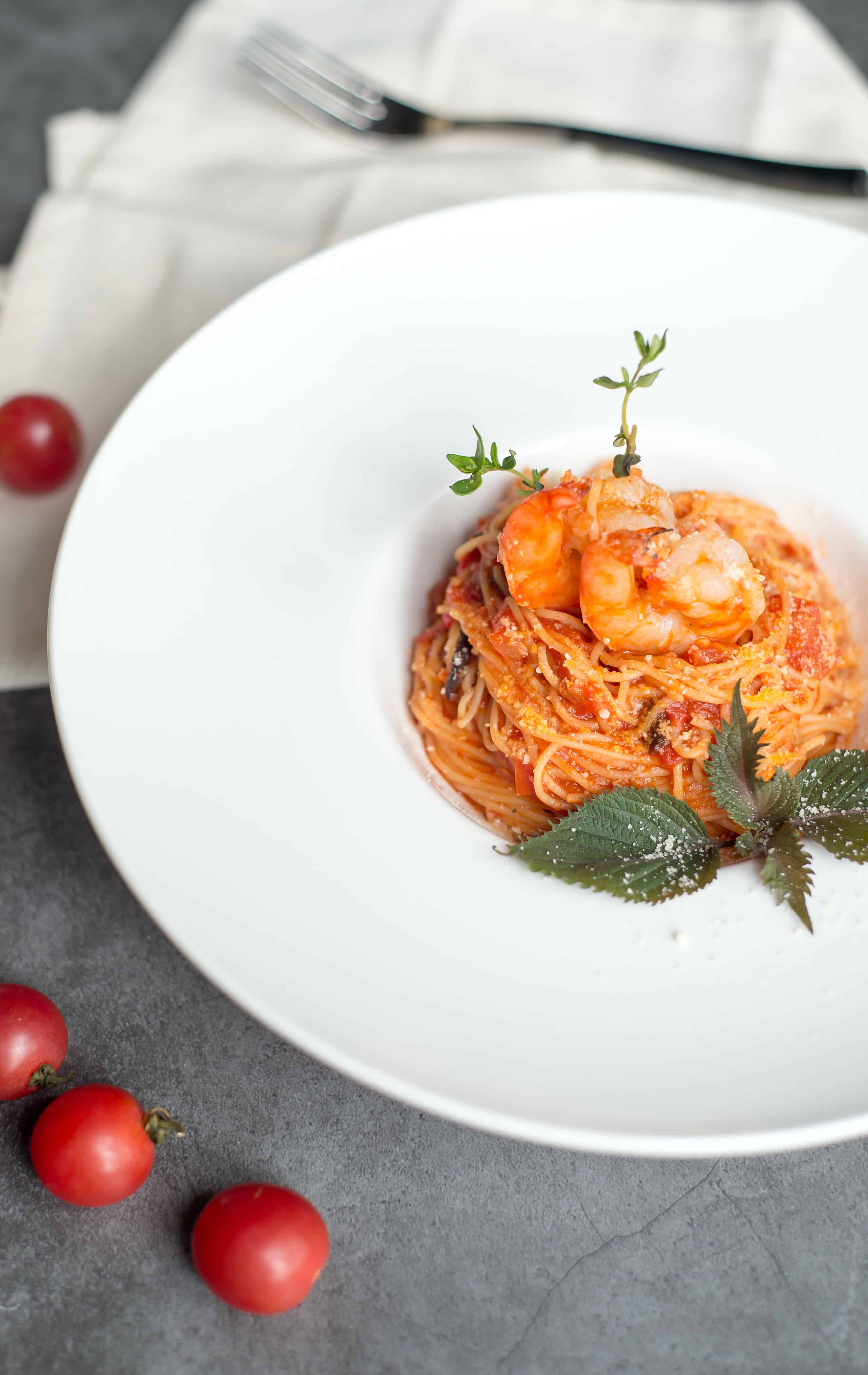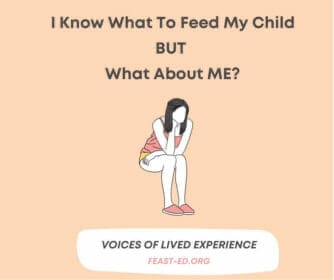
One of the most common questions I hear on the parent support forums for caregivers of loved ones with Eating Disorders is “I know my kid needs a diet full of lots of calories and fats and to incorporate ALL kinds of foods but I NEED to be ‘healthy’ and do not want to gain weight with them or sacrifice my health – what do I do?“
Nutrition is so confusing and we live in a society that demonizes so many foods. We are thought to believe that we NEED to decrease the “junk” food and eat “clean”. These beliefs get so challenged when you are helping your child put on weight and become nutritionally rehabilitated. All while teaching them that “all foods fit”.
I wrote this post for the F.E.A.S.T blog to help address this complicated issue. Here is the original post.
I think it is fair to say that if you are reading this you are aware of the numerous challenges one faces when helping a loved one through treatment and recovery for an eating disorder. It will arguably be one of, if not THE, hardest thing you will ever go through. And then on top of that, none of the resources talk about the unexpected ‘side effects’ we, as caregivers, have to manage. The one topic that I see and hear over and over again on all the forums have to do with the caregiver and what they should do with their own nutrition. Here are some typical examples:
“I cannot eat the same foods that I have to feed my child because I am at risk for health issues”
“I do not want to gain weight, so I do not want to eat what they eat”
“How can I avoid gaining weight while my kid needs to gain?”
“My daughter won’t let me exercise because she says it triggers her”
“My spouse started doing the Whole30”
We could go on and on with examples. Do any of these resonate with you? This is a tough topic with no perfect answer, but I will try to give you a high-level overview from not only my professional opinion (I have advanced degrees in nutrition, I’m an Ex-RD and a Certified Intuitive Eating Practitioner) but my personal experience.
When my 16-year-old daughter was diagnosed with Anorexia I was floored. Like most of you, I am sure. I was in the health and wellness space for my entire professional life and I raised my girls to understand what healthy foods are, but they were never deprived from foods that were not deemed as “healthy”. I always believed in balance. This all went out the window once I learned that feeding my daughter all the foods that were not commonplace in our diets was indeed what she needed to heal her brain, body and mind from the throughs of her eating disorder. I am not going to lie, I felt VERY guilty feeding her a diet full of high fat foods and sugars. It was the complete opposite of what I deemed as “healthy”. I leaned in and trusted the process. I also knew this was not the rest of her life and it also demonstrated the important concept that “ALL foods fit”.
The conundrum that starts to occur in many caregivers is “why do I have to eat the same way?”. There is no perfect answer to this seemingly simple question. And in some cases, the kids DO require the parent to go bite for bite with them. Many parents do and they say that it made all the difference and it helped ease some of their child’s anxiety. As time goes on, this becomes less necessary as the refeeding process continues. If this is what the recovery process looks like for your child, just remember that it is temporary. Neither of you are going to eat this way forever – even though it may seem like it at the time.
Many parents are concerned that they are going to gain weight during their child’s recovery. Maybe their doctor has told them they need to lose weight (unfortunately much of the medical community suffers from fat phobia and weight stigma), or they are scared to gain weight because of their “health”. Here is the hard truth. One’s body weight does not equal their health status. Weight is NOT a vital sign. There are many things that you can do to focus on your health that have nothing to do with losing weight. Some examples are but not limited to improved sleep, joyful movement, stress reduction (yes, very hard while battling an eating disorder with a loved one but finding ways to bring mindfulness to your life), social connections, increasing fruits and vegetables, just to name a few.
Most diseases are not caused by increased body weight ALONE I highly encourage looking into the HAES philosophy (Health at Every Size). It will educate you that just increased body weight does NOT determine your health. This education was vital to me as I went through my own health rediscovery while my daughter was in treatment. I had to stop equating health with body size and fat percentage! Overall health is SO much more than that, but it is what society has deemed as healthy. I highly encourage you to look into anti-diet culture and educate yourself more in this area. It is extremely enlightening AND also helps with your loved one’s recovery, as this is important knowledge for them to understand as they recover. Unfortunately, we live in a society that glorifies dieting and living in a smaller body, but we now know that that is NOT the pinnacle of health. My daughter proudly wears a t-shirt that says “F” Diet culture” and she is so well aware that your weight does not determine her worth OR her health status (unless she is underweight, but we are not discussing that obvious truth here).
While your child undergoes treatment for an eating disorder, it is a perfect time to really educate yourself about your own relationship with your weight status. It is not the time to do ANY weight loss plan or “lifestyle” change. It is also important to remember that this is NOT forever. Although, it can absolutely feel like it is. If any medical professional suggests that you need to lose weight, I would explain that you have a child battling an eating disorder and this is not the time that you will be going on a weight loss diet. I would also ask them for evidence based science on weight loss plans that ARE successful in the long term (studies show that only 5-7% of those people that lose weight intentionally are able to keep it off in the long term, greater then 5 years, but the impact of the weight cycling can be more harmful than the original higher weight staying stagnant).
If your child struggles with exercise compulsion, it may be a time that you either decrease or forgo your exercise routine for a period of time. Again, this is not forever and not everyone needs to do this. Joyful movement is healthy on so many levels. I would encourage you to find ways to get some movement in that feels good for you while being very mindful of how this affects your child’s situation.
There is not one right way to go about all of this. On the positive side, this can be a time of introspection on your own views of health, body image, dieting, society and exercise. When life gives you lemons, make lemonade – and in this case, add REAL sugar!!!

Additional Resources
Having a child with an Eating Disorder is scary, confusing and also, lonely. I have made it a goal of mine to create resources that can be of value during this difficult time. Check out some of my other posts:
We Eat Only Healthy Foods In Our House! : A conflict I see daily with parents as they navigate these strange waters.
Best Books On Eating Disorders for Parents
LIFE INTERRUPTED: LESSONS LEARNED FROM PARENTING A TEEN WITH AN EATING DISORDER


